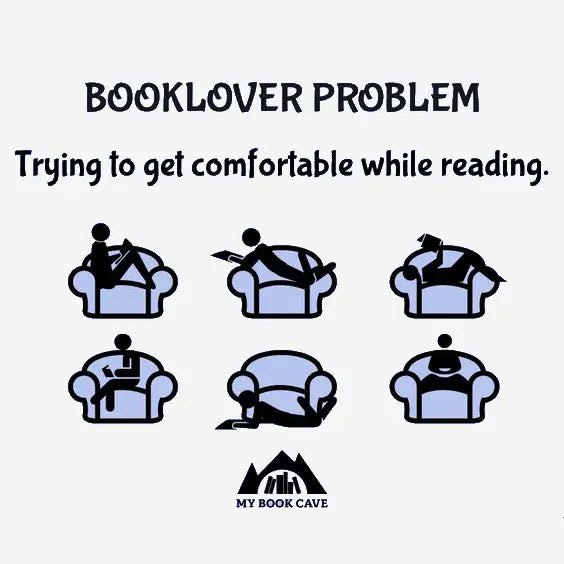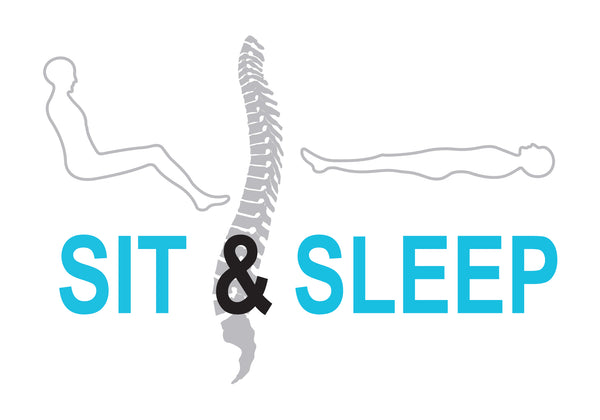
Relaxed and healthy reading without complaints...
You know the feeling, you'd love to devour books, but you can't keep it up for long. You get tired quickly, your neck gets stiff, and it's not always convenient or pleasant to read your book or holding your e-reader.
We bend our heads forward too much and for too long in a static sitting position, which causes the center of gravity of the head to lie in front of the cervical spine.
As a result, the neck muscles are put under extra strain by having to hold up the 4-kg head, causing strain on the muscles in the neck and shoulder region. The intervertebral discs and vertebral joints can also become overloaded, causing neck and back pain.
To reduce this burden, we tend to hold the book closer, while reading itself already requires maximum effort from our eyes .
The closer something is perceived, the more convex the eye lens becomes. And the more convex the eye lens, the more energy it requires. The orbicular muscles work for a long time. Using too short a reading distance can cause overload and shortening of the eye muscles.
Our posture and reading distance are therefore very important. If you read in a position that is not well-suited to your body, you may experience problems. Common complaints due to incorrect posture and reading distance include: neck and shoulder pain. shoulder pain, cold hands, pain in the hands or neck, headache, fatigue and concentration problems.



Unleash your inner bookworm with these viewing tips for a relaxed reading posture:
- Place your book at a 20° angle or use a bookend; this improves both your viewing and posture. Various versions are available, such as reading and writing aids and lap-reading aids.
- Hold the reading material straight in front of you so that the cervical vertebrae remain symmetrically aligned above each other.
- Reading distance is optimal when the distance between your middle finger joint and your elbow fits between your face and the book.
- Sit upright, chest out, and shoulders back, for example, at a table. Or sit in a recliner with good lower back support and elbow support.
- If you find it difficult to sit upright, use a seat disc to facilitate an active sitting position with an open hip angle.
- Regularly direct your eyes into the distance (for example, out the window) to relax them. So take regular breaks, don't push your eye muscles to their limits, and avoid allowing them to relax or shorten.
- Make sure there is sufficient light while reading.
- Do not read in bed, as this will not properly support your lower back.
- If you prefer to read while lying down, use Glazy: these are glasses that rotate your vision 90°, allowing you to easily watch TV from bed or read a book without neck strain.
- If complaints persist, it may be wise to make an appointment with your GP.




